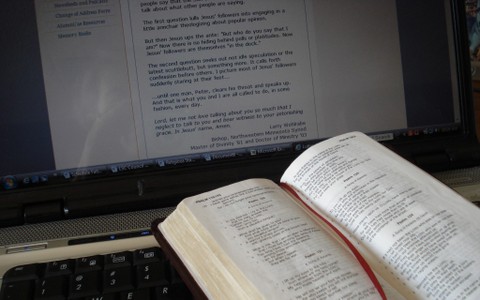David wrote Psalm 63 in the midst of some very difficult and heartbreaking circumstances. He, and his entourage, had just fled Jerusalem in light of the fact that Absalom was approaching Jerusalem with his army to kill David and overthrow his throne. David is now hiding out in the Judean wilderness where he had spent many years as a young shepherd. By some of the wording in the psalm it is obvious that the time of year is between May and October when there is no rain in The Judean wilderness, and therefore it is barren, dry and very hot. Think of what he’s going through; he has fled the palace; he is living in a wilderness, desert place; he is dealing with the humiliation of being chased off of his throne; He’s dealing with all the fears and confusion of those who have fled with him; and the source of all this is his very own son’s rebellion and desire to take his throne and have him killed. After arriving in the wilderness he also discovered that his closest confidant; the one whose counsel he depended on the most (“Ahithophel”, 1Sam. 15) had betrayed him and was now counseling Absalom on how to kill David. There are a lot of wonderful things in Psalm 63 that we could talk about but I want you to just notice a couple of things.
David starts the psalm by saying “O God, You are my God; I shall look to (or, “seek you”) you early.” I don’t believe David was saying that he got up early in the morning to seek the Lord; I think he was saying instead “early in this situation, the first thing I’m going to do is to establish the truth about Him in this situation.” Too many times we wait to see how things are going to go, or how they are going to turn out before we establish our attitude about a situation. David decided that he was going to cloth himself with “truth” at the very beginning of this wilderness experience so that he could stay free the whole time, not matter how it turned out. Verses 3-5 give us insight into what David considered the most important reality in light of what he was going through. “Because your lovingkindness is better than anything life has to offer, my lips will praise you. So I will bless you as long as I live; I will lift up my hands, waving them as banners of praise to you. Your lovingkindness satisfies me like nothing else. You, and your love for me is such a rich banquet of pleasure to my soul.” That one word “lovingkindness,” that is used so often in the Psalms to describe God’s love for us, is the one reality that David clings to during this time of great emotional, and spiritual warfare. It is the Hebrew word “chesed,” and is the word that speaks of COVENANT LOVE. It literally means “to vow, and make public your determination to love, with great delight and cherishing, someone with all of your heart; and to always pursue that person without reservation, with the resolve to never let go no matter what.” David established early that in this battle nothing life had to offer, or could ever take away, could compare to what he already had; the lovingkindness of God. David walked through this extreme battle in victory, not because of the way it turned out, but because the whole time through it he was celebrating the most important thing in the world to him that he knew he could never lose; God’s joyfilled, and relentless, and everlasting love for him.

